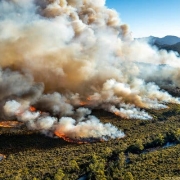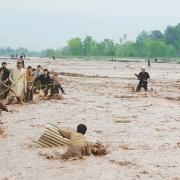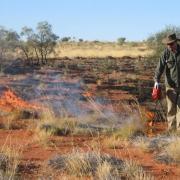Deadly Wildfires In Australia

While we happily welcomed the New Year in Pakistan, places around the world, like Australia, witnessed a rough start to 2020 with deadly wildfires. The southern hemisphere, where Australia is located, experiences summer while the rest of us are in winter, and vice versa, making it highly susceptible to wildfires due to hot, dry weather during this time of year. Since the fires began in August 2019, large parts of the country have been devastated as 15,000,000 acres of land has been burned; destroying 1,000 houses and killing 20 people nationwide. There has also been extensive damage to the natural habitats of wildlife animals – almost a third of koalas in the New South Wales state may have been killed in the fires.
In December, the air quality in Sydney measured 11 times the hazardous level, and urban centres in Melbourne have also been covered in thick plumes of smoke from the fires. Even with help from other countries like United States, the federal authorities are finding it difficult to control the dangerous blazes. Although bushfires are common in Australia and occur every year, it is unusually severe this year, and climate change is largely to blame. The country experienced the worst drought in decades and a record-breaking heatwave for the highest nationwide temperature in December. Extreme weather conditions have made natural disasters inevitable, and caused fires to start earlier and spread with greater intensity each year.

Since temperatures in Australia will most likely continue to rise in its peak summer time during January and February, it could be a long while before the fires end. We can only pray for the country and hope that the affected families find relief. News like this serves as a harsh reality check and a reminder that climate change is real, we are in a state of emergency







Leave a Reply
Want to join the discussion?Feel free to contribute!